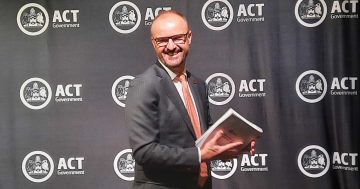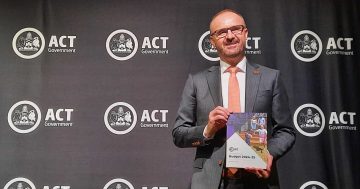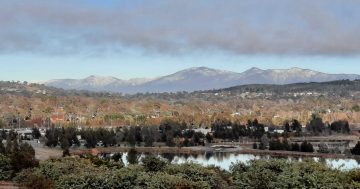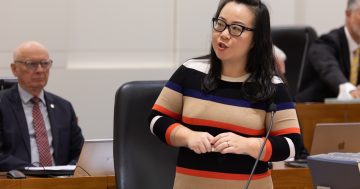
Rate rises and the government’s tax reform program will be at the centre of the election campaign. Photo: File.
Rates is set to again be a key election battleground after the government’s decision to press on with its tax reform program after a pause this financial year, the opposition sticking with its four-year freeze pledge and industry calling for a halt amid the uncertainty caused by the pandemic.
In a nod to the virus’s economic impact, Chief Minister Andrew Barr announced that both increases in residential and commercial rates would be capped at 3.75 per cent for five years from 2021-22 but said not having any rate rises at all would threaten the government’s ability to deliver services, especially with other revenue sources such as GST affected.
Mr Barr took aim at the Canberra Liberals, who have not explained how they would pay for rate relief without cuts to programs.
”If you didn’t have some increase in you own source taxation through the best and most efficient source you have available, what’s the consequence of that – either less investment in the community or you have to start cutting jobs and services.
”So its incumbent on those who are arguing to effectively freeze government revenue to explain what they will cut in order to give that tax cut.
”The Opposition Leader cannot just skate through the next seven weeks without answering that fundamental question – what’s he going to cut to pay for his unaffordable tax promise at this time, a tax promise that is irresponsible, one that puts at risk jobs.”
But Opposition Leader Alistair Coe countered that the cost of a rates freeze was only about .5 per cent of revenue, and that the Canberra Liberals would grow the economic pie.
He said the government was making Canberra unaffordable for thousands of residents and forcing many across the border in search of affordable land, houses and places to do business.
”I think Canberrans would be very sceptical and very cynical about any commitment the ACT Government gives regarding rates,” he said.
”What we want to do is make sure that we have a bigger pie in the ACT, that we have more economic activity and harness the growth of the region here in Canberra.
”People shouldn’t have to go and live in exile in NSW in search of affordable accommodation.”
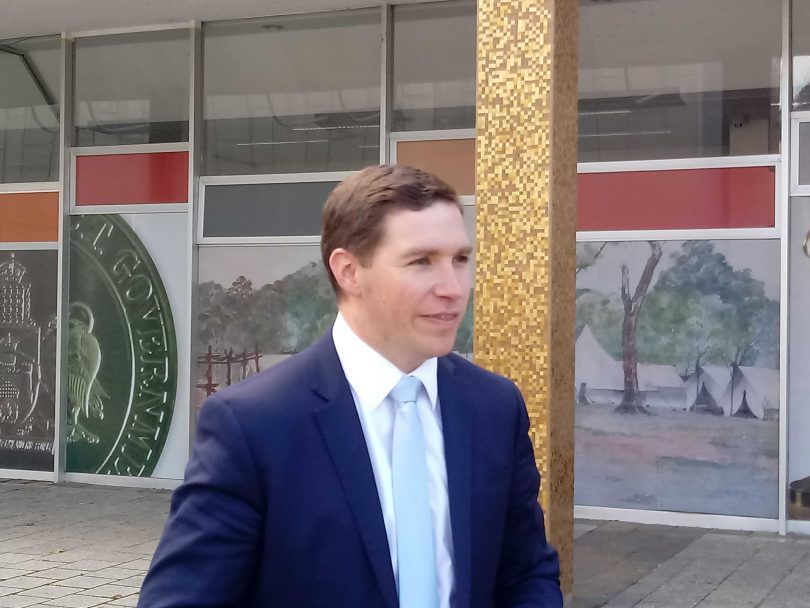
Opposition Leader Alistair Coe: tax and economic policy detail still to come. Photo: Ian Bushnell.
But Mr Coe again would not say how the Canberra Liberals would do this, saying voters would hear more over coming weeks.
”We will take our time in a measured and considered way and look through the numbers,” he said.
But the future of government’s tax reform program, lauded by economists as contributing to a fairer and more reliable tax system, looks shaky under a Liberal government.
”We’re committed to the same stamp duty regime spelt out in past budgets, what we’re not committed to is tripling the rates that we’ve seen under ACT Labor,” Mr Coe said.
Meanwhile, the ACT Property Council has joined the rates row, calling for a halt to the planned increases, even if capped.
Executive director Adina Cirson said business and commercial property owners and investors feared that they were being asked to disproportionally shoulder the burden of the COVID-19 induced recession.
In the current economic circumstances getting the tax settings right was crucial, she said.
“What we know is that on the ground, increases to rates, particularly at this time will potentially mean less investment, less office, retail and mixed use developments, resulting in a narrower tax base as businesses drift over the border,” Ms Cirson said.
“It is our concern that moving to the next stage of the ACT’s tax reform program only adds to the tax burden for small business, commercial property owners and investors at a time of immense uncertainty.”
Ms Cirson said analysis of the reform program disguised the fact that much of the tax burden had really been shifted to business and commercial property through higher rates and ongoing stamp duty liabilities.
She also called for the government to hasten its move to lift the stamp duty exemption threshold from $1.5 million to $2 million, and not wait until 2025-26 to achieve it.
The ACT goes to the polls on 17 October but early voting starts on 28 September.













